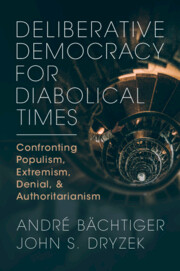This essay aims to advance the general discussion of hypocrisy in moral and political philosophy as well as normative policy debates regarding democratic sanctions against autocracies that often trigger charges of hypocrisy. In the process of making sense of these charges, I articulate and tackle three general puzzles regarding hypocrisy complaints. The first—the inaction puzzle—asks why a charge of hypocrisy should have any effect on the moral assessment of an agent’s actions, as distinct from the agent’s character or attitudes. The second—the ambivalence puzzle—asks why we often react to hypocrisy charges with seemingly paradoxical ambivalence, recognizing such charges for the transparent deflections they often are, but also granting their normative force. The third—the preemption puzzle—asks why hypocrisy charges do not entirely lose their force when their targets openly concede that they too have suffered from the same flaws that they highlight in others. I argue that sustained reflection on each of these puzzles can enrich—and be enriched by—normative analysis of democratic sanctions.

